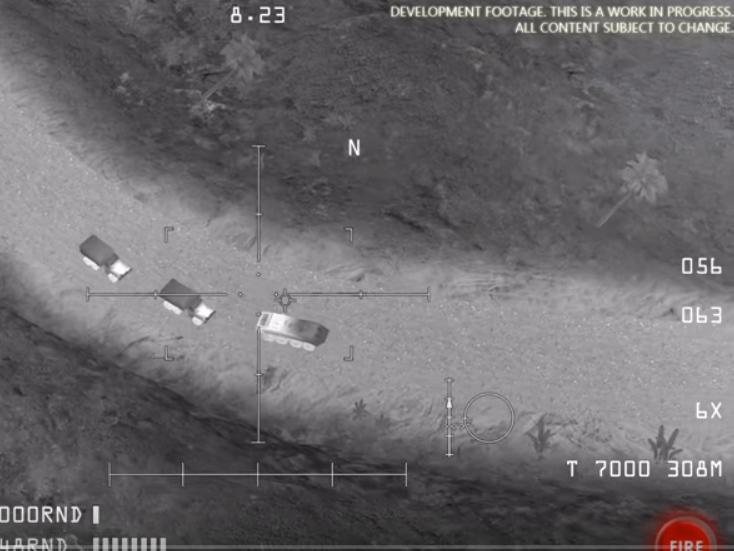Russia claims US is helping Isis - using video games as evidence
Some photos purporting to show proof of US forces being where they shouldn't be are proven to be from a computer game

Your support helps us to tell the story
From reproductive rights to climate change to Big Tech, The Independent is on the ground when the story is developing. Whether it's investigating the financials of Elon Musk's pro-Trump PAC or producing our latest documentary, 'The A Word', which shines a light on the American women fighting for reproductive rights, we know how important it is to parse out the facts from the messaging.
At such a critical moment in US history, we need reporters on the ground. Your donation allows us to keep sending journalists to speak to both sides of the story.
The Independent is trusted by Americans across the entire political spectrum. And unlike many other quality news outlets, we choose not to lock Americans out of our reporting and analysis with paywalls. We believe quality journalism should be available to everyone, paid for by those who can afford it.
Your support makes all the difference.Following Donald Trump and Vladimir Putin’s short meeting in Vietnam on Saturday, the high-level rhetoric had been about a new understanding on Syria. At ground level, however, the differences continue to appear intractable.
On Tuesday, the Russian Ministry of Defence said American forces were assisting Isis against Russian-backed forces. And, in a series of social media posts, it attempted to prove “irrefutable facts” of the case. They published photographs from 9 November, which, they said, showed how Isis convoys left Abu Kamal towards areas controlled by American special forces.
But there was a problem. As citizen bloggers soon pointed out, the photos that the Russians presented as evidence were familiar. Some had been circulating for days - and in many cases had already been debunked.
One was apparently a screenshot of a smartphone video game, AC-130 Gunship Simulator: Special Ops Squadron. It seems to have been taken from a video published on YouTube on 25 March.
Some pictures appear to have been lifted from a video published by the Iraqi Ministry of Defence, showing Iraqi air strikes against Isis targets near Fallujah in June 2016. Others seem to originate from military action in Libya.
By 2pm local time, about an hour after publication, the Russian Ministry of Defence had removed disputed photographs from its social media pages.
According to the original Russian claims, US high command had refused to strike against Isis fighters fleeing Abu Kamal. Moreover, they “hindered the activities of Russian air force places” operating in the area.
The US was “imitating” a battle against international terrorism, said the Russian Defence Ministry. In fact, they were enabling Isis to “regroup” and “rearm.”
It was not the first time Russia has blamed US forces for assisting “terrorists” in the region. As relations between the countries hover around historical lows, Moscow has made regular claims about Isis groups conducting operations from zones under US control.
In September, the Russian Ministry of Defence asserted that the “absence” of military action in the immediate area around US bases was suspicious. It said: “All of this raises questions? With whom and against whom are American special forces operating?”
On the same day, Russians had blamed the death of Lieutenant General Valery Asapov near Deir Ezzor as “the blood price of American hypocrisy”.
Anton Mardasov, a military expert at the Moscow-based Institute for Innovative Development, said “underdeveloped propaganda” seemed to be at play in the military’s claims. Russia had many ways of proving their allegations against the US, but had not done so. The target of such propaganda was Russians themselves, he added.
Vladimir Frolov, a security expert and former Kremlin adviser, told The Independent that the social media posts suggested a “lack of adult supervision” in the Defence Ministry.
“This is something that would be impossible in Soviet times,” he said. “Russia faces only one major military threat – and that’s the one from its bonkers press service.”
The US State Department described the Russian claims as "preposterous."
"It is time for Moscow to drop the propaganda and disinformation, and focus on destroying our common enemy," State Department spokesperson Heather Nauert told the Independent: "The fight against Isis is not a game."
The Independent has contacted the Russian Defence Ministry for comment.
Join our commenting forum
Join thought-provoking conversations, follow other Independent readers and see their replies
Comments